My blog Reflections on the Bangsa Moro was lost in 2011 when the bloghost BLOGSOME.COM folded. I never thought blogsome would close down. It seemed like a small but solid enterprise in Ireland. They must have sent warnings to its clients but I must have been too busy then doing other things so I wasn’t able to export the contents to my other blogs.
With the rains doing havoc on my schedule, I spent my time these past few days browsing the ‘net to look for any posts I have that were re-blogged by others. To my surprise, I found my two most popular posts from that blog – Maratabat and the Maranaos & Filipino Crab Mentality archived. Archived is not re-blogged. Archived is somehow hidden unless one knows where to look.
So, after being lost and hidden for some four years, I am re-posting it here in its entirety, together with the comments.
FILIPINO CRAB MENTALITY – THE INSTITUTIONALIZATION OF MEDIOCRACY | # | History, Socio-Political, Bangsa Moro,Moroland, Religious / Cultural — jamalashley @ 12:57 am
I first read about Filipino crab mentality when I was freshman in college in the mid 1970s. At that time I did not understand what crab mentality was all about. But the image — of crabs almost succeeding in getting out of the basket only to be pulled back down by their fellow crabs — stuck in my mind.
 From where I came from, crab mentality was not in our consciousness. I thought that leadership did not come by chance, it was destined. Those who were born brilliant or with good bloodline or with riches are the natural leaders. They could of course, choose not to be leaders. But the mediocre ones simply could not be leaders.
From where I came from, crab mentality was not in our consciousness. I thought that leadership did not come by chance, it was destined. Those who were born brilliant or with good bloodline or with riches are the natural leaders. They could of course, choose not to be leaders. But the mediocre ones simply could not be leaders.
When I was growing up, I saw only deserving leaders. My idol, of course, was my father. He was the first Moro lawyer, fiscal and CFI judge. His reputation for intelligence, uprightness and honesty was recognized widely – in all of Lanao, Cotabato, Zamboanga and Sulu and in the halls of power in Manila. His best friends – Alonto, the Sinsuat brothers, Pendatun, and Amilbangsa were leaders of their people. Alonto and Pendatun became senators while Duma Sinsuat was a Cabinet member. They all appeared to be equipped with proper credentials – education, bloodline, ambition and leadership qualities.

My mother’s relatives and friends were also in positions of leadership, some of them national leaders. My eldest sister’s husband was also climbing up the political leader. He was a graduate of Cornell University. His elder brother was a graduate of Stanford University.
My brothers were making names for themselves in College. At the Ateneo de Davao, Jun took practically all the leadership posts – from President of the Student Council, to ROTC Corps Commander, to Captain of the Debating team. At the University of the Philippines, he was a campus figure and was a national youth leader. Sing, on the other hand, filled his shelves with dozens of trophies from oratorical contests.
In school, I learned about Jose Rizal and the Propagandists, all brilliant and brave writers and artists. And the revolutionaries – Bonifacio, Aguinaldo, Antonio Luna, Apolinaro Mabini – were all great leaders.

On the Moro historical front, I constantly heard of my father’s clan’s hero – Datu Amai Pakpak, the hero of Marawi in the fight against the Spaniards. On my mother’s side, there was Sultan Pandapatan and the datus of Bayang who fought the Americans in the Battle of Bayang.
My childhood was filled with stories from my father who told me about the mythical Moro heroes Rajah Indarapatra and Datu Bantugan as well as the legendary Persian heroes Sohrab and Rustum.
My mother, on the other hand, filled me with stories about her father, mother, grandparents, uncles and aunts who all seemed to have lived in a land and time far removed from mid to late 20th century Manila.
By the time I was 10 years old, I had memorized Greek and Roman mythology as well as some Nordic myths and the German story of Sigfried the Dragon Slayer.
These mythical and real heroes were men and women of destiny. They did not come to power and responsibility by pulling others down.
All throughout my life, I’ve seen relatives assume positions of leadership. And so did I. From grade school to graduate school, from Cub Scout to Boy Scout, I’ve always found myself on top of the heap even if I refused to be one.
The concept of crab mentality was alien to me until I saw them in action much much later. It was the time when mediocrity shamelessly exposed itself all over the government. That was the time of Corazon Cojuangco – Aquino.
ORIGINS
When the Spaniards conquered Luzon and Visayas in the late 16th century, the natives, or Indios or Naturales as they were called by the Spaniards, lost all their rights to life, liberty and property. For 350 years, the indios were considered perpetual legal minors. They could not even own property or do practically anything unless approved by their legal guardians – the Spanish civil or church officials.
The Spaniards owned all properties in the islands. But, they gave some to their favorites – their sidekicks, their lovers or their illegitimate children. These favorites became the native elites called Ilustrados. These ilustrados were the cronies of the Spaniards. They managed the plantations in behalf of the Spaniards, much like the cronies of President Marcos who managed the business conglomerates in behalf of Marcos.
The favorites of these ilustrados became the petty politicians – the gobernadorcillos, the alcaldes, the tenientes del barrio, etc. These petty politicians and their families made up the native middle class called the Principalia.

The rest of the population had to serve these classes and the Spaniards who were then called Filipinos. There were two kinds of Filipinos – the Peninsulares and the Insulares. The former were the Spaniards born in Spain but residing in the Islands. They were usually the officials sent by the Spanish government and church – from the Governor-General and the Archbishops down to the lowest officials. The Insulares were the Spaniards who were already born in the Islands. These were the landholders and business people.
For the indios or naturales to have a good life, they needed to be in the

good graces of the Filipinos. The women could be the lovers of these Filipinos. It was common for Spanish priests to sire mestizo children. Jose Rizal’s Padre Damaso and Maria Clara are the most famous examples of a Spanish (Filipino) friar and his illegitimate child.
To be in the good graces of the Spanish-Filipinos, one needed to be a loyal and hardworking servant. The easier way was to destroy the reputation of a favorite and extol one’s own qualities. Thus was born the Indios’ crab mentality.
Since going up the social ladder was based merely on the whims and caprices of the Spanish masters (called Filipinos), the indios needed to totally embrace the crab mentality in order to survive. A whisper from a favorite indio (an ilustrado) could mean life or death for an ordinary indio. And it went down the line. A word from a principalia indio to an ilustrado indio could make or break an ordinary indio. This was the state of affairs for 350 years under Spanish rule.
When the Americans came, the indios, who were now called Filipinos, simply continued the tried and tested practice of crab mentality. The Americans simply replaced the Spaniards. New sidekicks like Tua Son became owners of vast tracts of lands. Others, like the Ayalas, married Americans. Many of the Ilustrados obtained legal ownership of the lands and businesses they managed in behalf of their Spanish masters just as many cronies obtained ownership of the companies they used to proxy for Marcos, to the great indignation of Marcos’s widow, Imelda.
The new Filipinos had to master the crab mentality again in order to succeed during the American Occupation. They especially needed it because the American regime opened up new vistas for the new Filipinos – government posts, employment in businesses, etc.
A new window of opportunity opened – American education. People who were educated and spoke English had greater chances of employment.
When Philippine Independence came, the Americans departed – well, most of them. A new round of sucking up and backbiting ensued. There were massive opportunities to join the ilustrado and principalia classes. And those who didn’t know how to play the game simply fell on the side.
Education became even more important in the social ladder. Educated people were taken in by the ilustrados to run their businesses or to be their proxies in the political arena. Education was publicized as the great Equalizer. The myth that good education guarantees good life was set in the agenda. “Education, not revolution”, was the idea promoted by the new Republic.
The pacifist Jose Rizal was declared the national hero while the exploits of revolutionaries Emilio Aguinaldo and Andres Bonifacio were downplayed. The educated cosmopolite Jose Rizal became the role model of the young new Filipinos.
But for the clever ones, they knew that the crab game was still the game to play – with or without education.
THE MORO FRONT
The Moros had a totally different historical experience. During the Spanish times, the various sultanates had to be strong to be able to survive the Spanish onslaught as well as the colonizing attempts of other Europeans like the Dutch, the Portuguese and the British.
The social system was quite fixed. There were the royals, the nobles, the Arabs (in Sulu they are called salips or sharifs), the freemen and the slaves. The Moros usually married within their class but they could be from other ethnic groups. The Tausugs usually intermarried with Bruneians or Samas; the Maguindanaons and Buayanens intermarried with Maranaos / Iranuns and even with Ternatans or Moluccans.
There was no room for the crab mentality. To go up the social ladder, one could join in the Moro raids on Spanish territories in Luzon and Visayas. And to protect those gains, one needed to support the datus and sultans in the fight against Spain.

It was only among royals that in-fighting occurred. The Maguindanaons and Buayanens were constantly fighting with each other. And if they were not fighting with each other, they fought the Taosugs for territories in mainland Mindanao. Sometimes, they formed united fronts together with Borneo and Ternate to fight the Spaniards.
Succession to the throne was always a major issue. And the Spaniards capitalized on that by supporting their favored royal. That was the extent of their crab mentality. But then, in order to have a claim on the throne, one needed to be born royal first and foremost.
AMERICAN OCCUPATION
The colonizers’ ‘divide-and-rule’ strategy created the environment conducive to the growth of the crab mentality. The coming of the Americans to Moroland was a double-triple whammy for the Moros. It was the beginning of the end for the Bangsa Moro people(s). First, the Americans played the game of divide-and-rule perfectly. Their ‘policy of attraction’ won over the Moros. Second, they brought along the new Filipinos, who had 350 years of

experience with the crab mentality. Third, they handed Moroland to the Indios, now called Filipinos, on a silver platter much like the way the Allies gave Palestine to the Jews.
With the coming of the Americans, new rounds of fighting occurred all over Moroland – Lanao, Maguindanao, Buayan, Sulu, Zamboanga, Palawan, Davao, etc. But America’s divide-and-rule strategy and policy of attraction tactic broke down the Moros into myriad datuships.
The datus either fought the Americans or vied for its friendship. The crab mentality had seeped into the Moro society. But only among the datu class.
PHILIPPINE NATIONHOOD
With the Americans came the Filipinos. The Filipinos were already veterans in the crab mentality game and they used it to the utmost. The Moros petitioned the US Congress and the US president not to include them in the Philippine statehood. The Filipino leaders led by Quezon and Osmeña constantly bombarded the US officials with
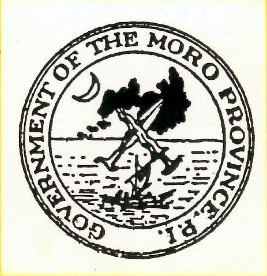
the notion that the Moros and Filipinos belonged to one country. They even went to the US on several occasions to counter the Moro petitions.
With the Commonwealth came the Filipinization of the country. Filipino leaders, imitating their American masters, seduced Moro leaders with government posts which carried with them money and power.
The Moro datus were thus divided into two groups – the Filipinistas and the Americanistas. The Filipinistas bought into the concept of a Philippine statehood. They thought that the sweet-talking Filipino politicians would share power with them.
The Americanistas were the old-timers. They were suspicious of Filipinos and preferred American statehood, if not Moro independence.
World War II changed the world. Moros who were against Philippine statehood could do nothing when America handed them over to the Filipinos. They had neither the resources nor the inclination to fight another war.
Quezon said he would rather have a Philippines run like hell by Filipinos than a Philippines run like heaven by Americans. He got his wish, to the detriment of the Filipinos, including the Moros.
But from the time of Independence up to Marcos’s Martial law, the crab mentality in Moroland was limited to the ruling elites – the traditional leaders and the new political leaders.
But the good thing was that the Moro masses were largely suspicious of the Filipinos. And so they supported only Moro leaders who they thought would protect them against the Filipinos. Crab mentality had not yet reached their consciousness, generally speaking.
BANGSA MORO REVOLUTION
By the late 1960s, millions of Indios have settled in Mindanao, thanks to the systematic “colonization” policies of the government. Moro ancestral lands were distributed and parceled among the Indio settlers. Most of the logging and mining concessions were given to the Indios. The Moros were left with nothing except local political posts.
While the Indios already outnumbered the Moros, Moro political leaders were still being elected. The elites in Manila thought that this was a very cozy arrangement. Let the Moros fight over local electoral posts – congressional, gubernatorial, mayoral, etc. while the Indios control Mindanao economy.
But Ferdinand Marcos was more ambitious. He wanted political power in Mindanao, too. He needed that for his Martial Law. So, he told the Indios in Mindanao to set up Indio candidates and vote for these Indios against the traditional Moro politicians. And so in the 1969 elections, Indios became mayors, governors, congressmen, etc. in Mindanao.

The Moro politicians realized that sleeping with the Indios was not a good idea. And soon, all hell broke lose with Marcos unleashing his military-supported Indio vigilantes on the Moros. Moro political families had to fight them for dear life. And so the modern-day Bangsa Moro revolution was conceived.
But before its maturity, a foreign country intruded. Its Foreign Minister wanted to be the midwife to this revolutionary baby. And so, before its full term, a Caesarian delivery was caused by this foreign midwife. And thus, the modern-day Bangsa Moro revolution was born pre-maturely and eventually, its growth was stunted.
MARTIAL LAW
When Martial Law was declared, the Moro leaders were caught in a bind. They refused to collaborate with Marcos but they could not fight openly because the revolution had been taken away from them by the foreigners. The foreign-reared revolutionary baby grew strong with petro milk and military toys, but without massive support from the traditional leaders, the intellectuals and the Moro masses, it could not survive long.
Meanwhile Marcos employed the old reliable divide-and-rule tactic. He bought the commanders and political
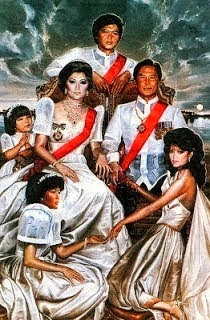
leaders. He was able to buy off a few commanders. But the traditional Moro leaders stayed away. Only one politician and his extended family joined him. He thus became the biggest crony in Mindanao.
The Moro middle class realized that Marcos gave them a huge opportunity for personal aggrandizement. All one had to do was to be the lapdog of Marcos or his cronies. With most leaders and intellectuals shying away from Marcos, a new breed of politicians came to being. They were mainly characterized by their subservience to Mr. Marcos.
The Moro masses saw what was happening. And soon, they were also playing the crab game. Elsewhere, the Filipino masses also had the same observations. But they were old hands in this game.
POST-EDSA
When Corazon C. Aquino became President, almost everyone said that if a housewife could be President of the Republic, then anybody could assume any government posts. And every Tom, Dick and Harry – Moros and Indios alike — vied for the various government posts. Most of the OICs (officers-in-charge) had nothing to show for a résumé. The Bulong brigade, the Kamaganak, Inc. and the cordon sanitaire protected her from the mob who suddenly thought that they were capable of leadership. The crab mentality was at its height. And the Philippines officially turned from a Dictatorship to a Mediocracy – the rule of the mediocre.
One of the running joke commentaries on Pres. Aquino was based on her name – Corazon C. Aquino: Corazon (pointing to the heart), Sí (Yes); Aqui (Here, pointing to the head), No. It means that Cory was all heart and no brain.
The pre-Martial Law oligarchs came back, the Marcos cronies still retained their wealth, and everyone was trying to climb out of the basket while pushing and pulling everyone else down.
The august hall of the Senate started to be filled with entertainers – Orly Mercado, Freddie Webb and Joseph Estrada blazed the Senate trail for future entertainers.
MEDIOCRACY
 Mediocracy is the form of government of the Philippine Republic. Mediocrity pervades the whole society – the bureaucracy, business and industry, education, etc. And the crab mentality insures that mediocracy remains and the Philippine society will never prosper and develop.
Mediocracy is the form of government of the Philippine Republic. Mediocrity pervades the whole society – the bureaucracy, business and industry, education, etc. And the crab mentality insures that mediocracy remains and the Philippine society will never prosper and develop.
Mediocrity is the number one qualification the employers are looking for. They like mediocres, because they get paid little. Slowly, but surely, if they know how to play suck up, these mediocre people will rise through the ranks. It is whom you cling to that counts.
Take a look around you. Look at your banks. Look at the bank presidents and managers. If they are not the owners, they most probably started as clerks or even janitors. Through the years, they managed to suck up to their bosses who brought them along as they climbed up the ladder of success. So, how can these banks be run like world class banks when these are run by former clerks and janitors? What do they know of macroeconomics and microeconomics or econometrics or the latest trends in world banking?
Look at the film industry. Directors started as drivers or utility boys. By being loyal sidekicks, they work their way up to be directors. Do they know any film theories? Have they even seen the classics of world cinema? How could they compete with the world’s film industry? Even the Filipino masses got fed up with the trashy films produced by the locals.
Look at our energy industry. We have one of the most expensive electricity in Asia. We have an Oil Downstream Deregulation Law which makes oil prices even more expensive. While we are already in the 21st century, we still have thousands of barangays without electricity. We sold the majority shares of our own oil company (Petron) for what? A year later, the proceeds were given back to the three oil Majors due to supposed Oil Price Stabilization Fund (OPSF) balance. Saudi Aramco, which bought the Petron shares, immediately got back its investment, with profits to boot, in just a year’s time! And the poor Filipino people was left holding an empty bag.
In the late 1990s, a Congressman hogged the headlines with an idea for an Oil Exchange. And the Energy Secretary engaged him in endless debate. Finally, I sent a Letter to the Editor which explained that these gentlemen were merely exposing their “sophomoric knowledge” about the world oil industry. I then explained “The Truths About World Oil Market”, the title the editors gave my letter.
EDUCATION
Look at institutions of learning. To get into the faculty, the other faculty members must approve of the applicant. But if the applicant is intelligent and knowledgeable, the others would be scared. They want to get colleagues who are worse than them so they will not feel intimidated. So don’t wonder why Philippine universities rank so low in the world. Actually, the present rankings are even better than it should.
In most parts of the world, a University degree automatically means higher pay. Not in the Philippines. University degrees guarantee nothing. Employers and managers would rather get cheap labor.
To further institutionalize cheap “educated” labor, schools and industries create the concept of On-the-Job training where university students work in industries with NO pay. And in some industries, students even have to pay companies in order to work for them for FREE. This happens only in the Philippines and it boggles the imagination how such a ridiculous scheme could happen at all.
where university students work in industries with NO pay. And in some industries, students even have to pay companies in order to work for them for FREE. This happens only in the Philippines and it boggles the imagination how such a ridiculous scheme could happen at all.
Filipinos are shocked when I tell them that when I had my practicum in Germany, while still in College, I was paid around 800 Deutsche Marks a month. When I had my 7-month on-the-job training in Saudi Arabia as part of my curriculum, I was paid 1000 US dollars a month.
While taking graduate studies at the University of Asia and the Pacific, we visited a computer plant in Subic. The Chinese manager praised to high heavens the Philippines and Filipinos. He said that in his country (Taiwan, I think), they could not get as many engineers. When we saw these Filipino engineers, I asked one of them how much she was getting. She was being paid the MINIMUM wage. And she was a computer engineer. Aside from her everyday expenses, she had to pay for her dorm. And when I saw what she was doing, I told her and the group with me that any high school graduate could do that job. She agreed.
No wonder the Taiwanese company could not get many Taiwanese engineers. I bet that no self-respecting Taiwanese computer engineer would agree to do such a job and with such a low salary.
I met a Malaysian who was a CITIBANK Country Manager. He was living in a condo in Makati. When I asked what his undergraduate course was, I got the shock of my life when he said he did not finish college. And then, as if to defend himself, he said that Malaysia is not like the Philippines where there are millions of University graduates.
But he was not in Malaysia. He was in the Philippines. Why would Citibank get a Malaysian with no University degree when it could get Filipinos with a PhD?! Why is Philippine education regarded so lightly by the employers – both local and foreign?
MASS MEDIA
Why can’t Filipino reporters / anchors ask intelligent and penetrating questions to their guests or interviewees just as they do at CNN or BBC or Sky International? When watching news interviews, I can’t help but yawn at the 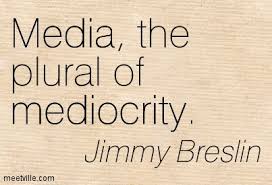 interviews. The interviewers not only are ignorant of the subjects but they are more interested in listening to their own voices than to the answers of the guests. Just a little bit of research can do wonders.
interviews. The interviewers not only are ignorant of the subjects but they are more interested in listening to their own voices than to the answers of the guests. Just a little bit of research can do wonders.
On many occasions, when reporters came to interview my eldest brother, he ended up telling the reporters what questions they should ask him. And the reporters loved it. It saved them from thinking. I found that so funny.
Yet when I worked in a government agency, I was so shocked when government top officials could not answer simple questions from reporters. It was not funny at all.
BUREAUCRACY
I am so glad I worked in the government service for a while. I got to see the real extent of mediocrity in the country.  This was further corroborated by my experience in teaching at the University of the Philippines. There is no doubt about it. We live in a government of mediocres.
This was further corroborated by my experience in teaching at the University of the Philippines. There is no doubt about it. We live in a government of mediocres.
MERITOCRACY
If we want to be other than suppliers of cheap labor to the world, we must veer away from mediocracy. The only way for the Philippines to develop and progress is to strive towards MERITOCRACY. Leadership and practically everything else must be based on Merit. But that would be a long, hard struggle and it needs a strong political will. One step that needs to be taken is the overhaul of the bureaucracy or the Civil Service.
For the Bangsa Moro, it is imperative that they choose leaders based on Merit. As I wrote elsewhere, the decay of minorities is exponential. This means that sooner of later, the Moros — as a distinct nation with its own culture and historically-based traditions — would soon disappear unless they do something about it. They cannot afford the luxury of a crab mentality tradtion. They need leaders who are intelligent, articulate and who can and will fight for their rights and not be subservient to the powers that be. They need intellectuals. All successful revolutions were guided by intellectuals.
Only with meritocracy can we create world-class universities, world-class industries and world-class people. And if our leaders—both Moros and Indios — are chosen because of their merit, then we might even have enduring peace in the country and finally find a lasting solution to the Bangsa Moro Problem.
Only in Meritocracy can we beat the dreaded Crab Mentality.
*********
See Related Post:
University of the Philippines — a haven for mediocrity
Datu Jamal Ashley Yahya Abbas
11 Comments »
The URI to TrackBack this entry is: http://jamalashley.blogsome.com/2007/05/05/filipino-crab-mentality/trackback/

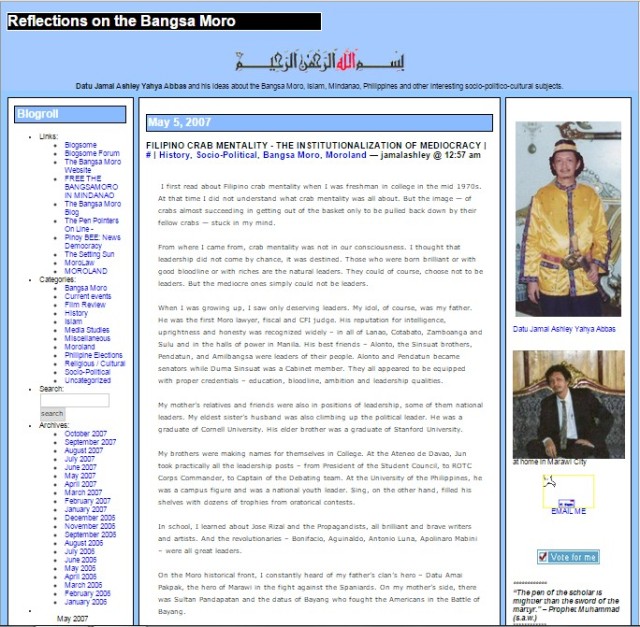
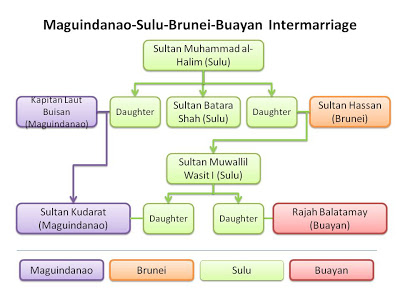


Thanks for your comments. Ciao.
Comment by jamalashley — March 23, 2008 @ 12:52 am
In my experience with Filipino Forums like PinoyExchange, and dealings with Filipino editors in Wikipedia, I value so much the Filipino delicacy of crab mentality. Tersely defined, this Filipino malady is “stalking” of the highest order. In my 5,800 contributions to Wikipedia, I had never had any problem with foreign editors, but daily, a Filipino stalker duets with an anonymous registered user who, in conspiracy, duets to “crab mentalize” my good faith edits. However, I recite Psalms 109 and 73 to imprecate these crabs, and more importantly, biblically cursed and put stain in their bloods up to the 4th generation. This crab illness is unique to Filipino culture, especially in Davao City.Comment by Judge Florentino Floro — September 15, 2008 @ 6:26 pm
it’s a shame that our children is subjected to racism, crab mentality in their own family, own community, own country because of most adult’s irresponsibility and ignorance.Comment by womanwhowrites — March 26, 2009 @ 5:05 am
This probably isn’t the point of this article. But I can’t stand by and not say something when I keep hearing the term “crab mentality” being tagged to our race. Don’t you think that’s unfair? It’s evident on every race, every culture, every era, every society. It has nothing to do with us being Filipinos. You say we drag each other down to mediocrity – try living with the whites or the blacks or the arabs or the jews or the brits or the aristocrats. I have an idea… why don’t we start by not looking down on our race too much and see if that will stop the crab mentality?Comment by lay — April 4, 2010 @ 6:32 pm
The Filipinos in the US, for example, may be discriminated upon (or envied or disliked) by the whites or the blacks, but that is not the same as crab mentality.
@Lay, you hit the mark there — Filipinos should stop looking down on their race. But that is easier said than done. The Filipinos have been conditioned to do so by their collective consciousness through their historical experience, by their history books (written by Spaniards, Americans and Westernized Filipinos), by the educational system, by Big Business (which is controlled by foreigners), by the political system, etc.
As I wrote in my other posts, the Filipinos need to search for their real Identity. Without identity, one is nothing.Comment by jamalashley — April 12, 2010 @ 12:21 am